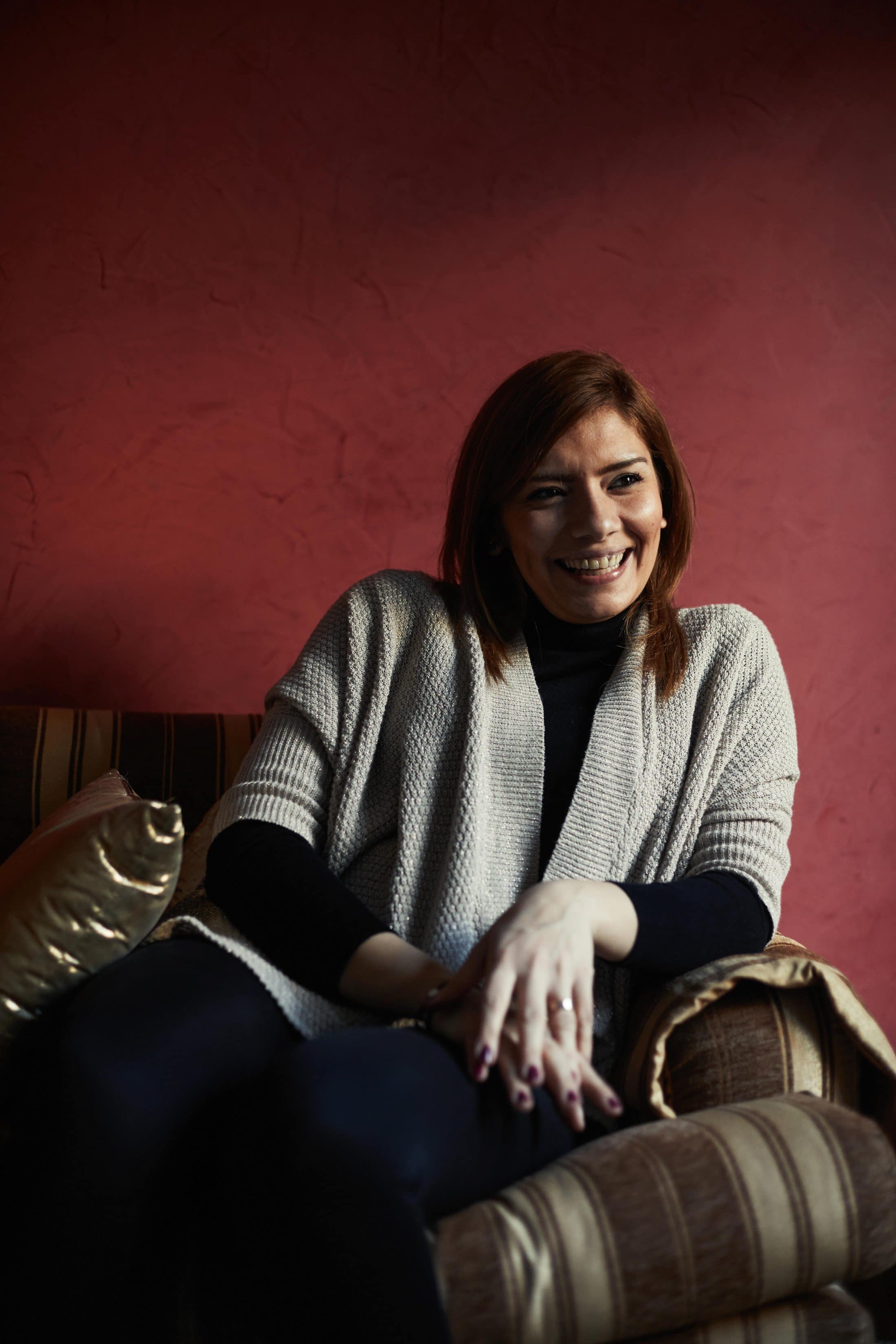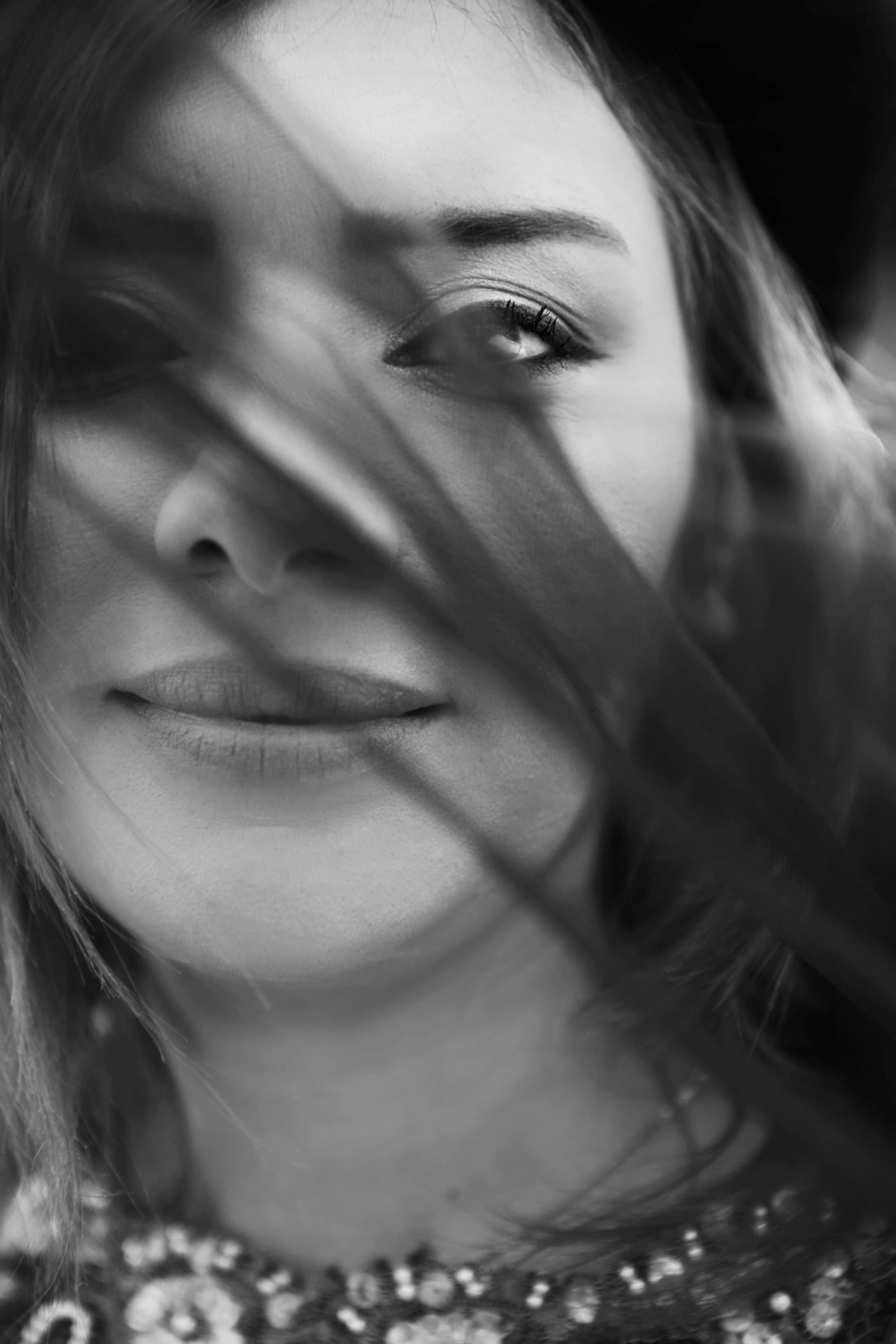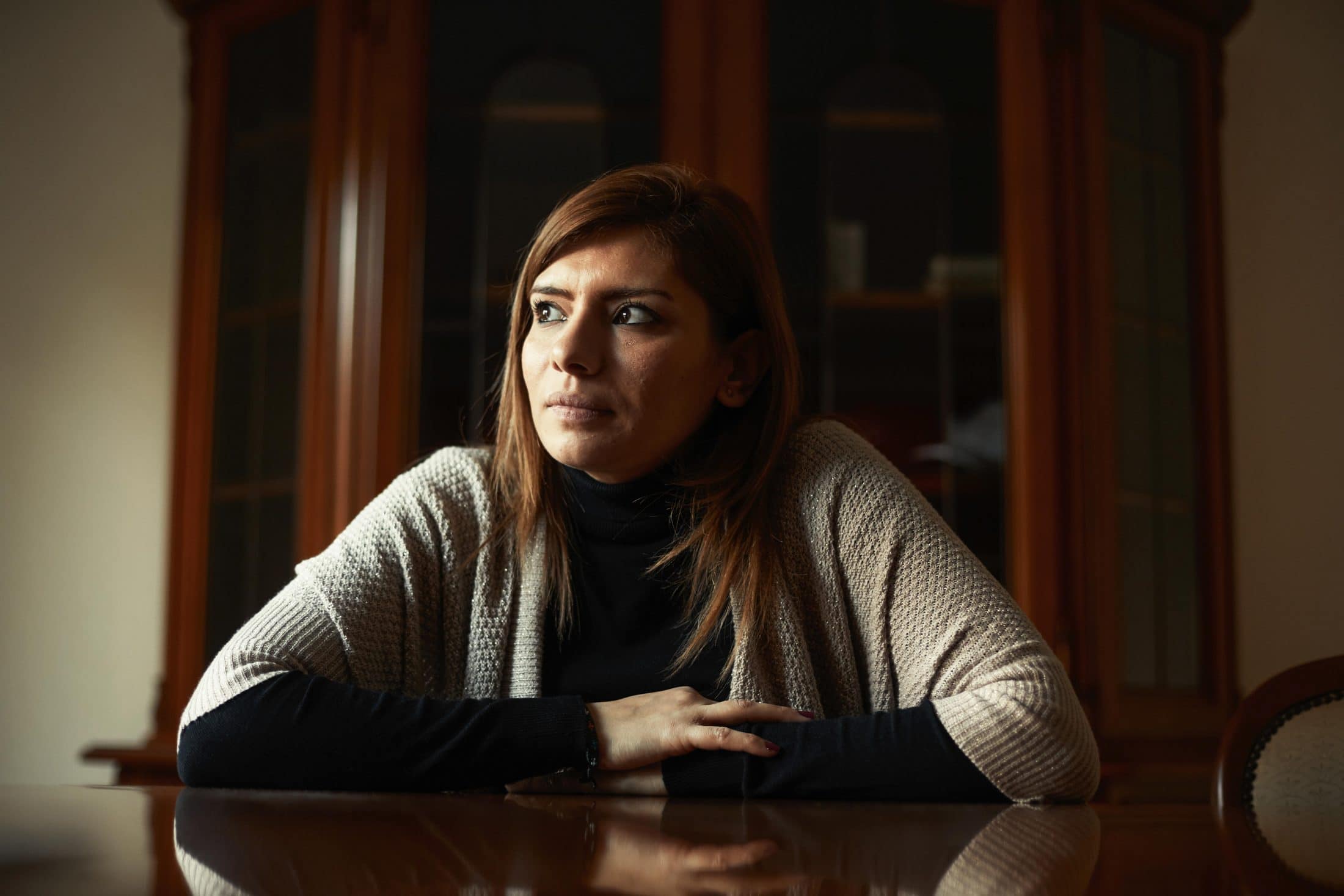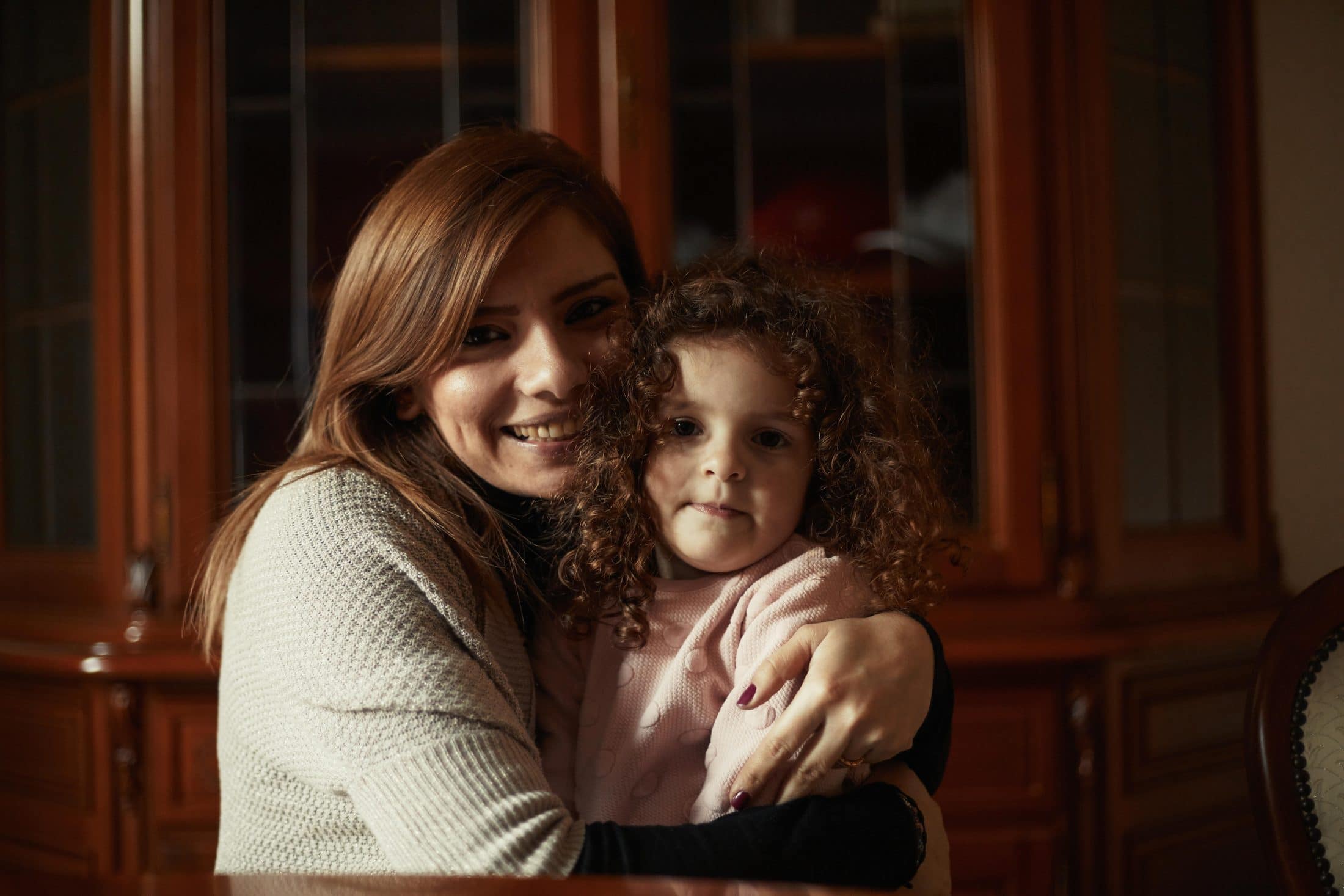

If you ask her to describe herself, she doesn’t hesitate for very long. ‘I’m gentle, strong, patient. I love life and I’m stubborn.
Pierre and I married early in the evening with the curtains drawn, so no one could see from the outside there was a party going on. There was a war in Aleppo and we married in the middle of the city. Nothing was normal, everything was different. I had picked up my wedding dress days in advance. Normally you would do that the day before your wedding, but we didn’t know what would happen and I didn’t want to be without a dress. We couldn’t party into the night, it was too dangerous for that. But party we did. Absolutely. Dancing is normal at a wedding, but our dancing was not normal dancing. We jumped around and celebrated life, knowing that it might be our last chance.
Eleven years ago, when I was an intern, all my co-workers kept talking about this Pierre: who he was, what he did. Pierre this, Pierre that. I had never seen him or spoken to him, and had no idea who he was. Until this same Pierre invited me to a party, supposedly with co-workers and friends. Except they never showed up… His plan worked, because we’ve been together ever since and after nine years we got married. That was four years ago.
I married during the war and I became pregnant during the war. Again, everything was different about this pregnancy. Normally, you would see a doctor for regular checkups; I would see a doctor after every bombing to make sure the baby was still alive. Normally you would be preparing a nursery; I swept up shards of glass when the windows were blown from their frames. Giving birth usually starts spontaneously, but we had to schedule a C-section. You don’t know if a doctor will be able to reach you in time during a war.
And then Marita was born. In the middle of the war. The feeling I had when I first held her is beyond words. I can describe the love I feel for Pierre. I can describe the love I feel for my parents. But I don’t know how to talk about the love I feel for Marita. When I went back to work after my pregnancy, I worked in a dangerous part of Aleppo. Every time I came home from work and held Marita in my arms, I would weep – I had survived once again and had been granted another day.
One day it was Pierre’s generation’s turn to be called for military service. A friend of ours who had access to the official documents, warned us in advance that Pierre might receive a call. We settled on a date and found a driver to take us to Lebanon. The driver cancelled. Normally you would postpone a trip like that and try to figure out a new plan of action. But it was war and I had learned to heed my intuition. And my intuition told me: get out. We found another driver and left that same day. Five days after we arrived in Lebanon, Pierre’s father called: Pierre had been ordered to report for service. They had come to the door. We knew there was no way back now. The door to Syria had been shut. We would have to make something of our life in Lebanon and that’s something that gave me great cause for tears.
I don’t cry as easily nowadays. The war has numbed our emotions. Before the war we would be distraught when someone died. It put us through great pain. Now when we hear of a casualty of the war, we say: ‘Oh no, another person died.’ But it’s become normal to us. I try to focus on what’s close to me: my daughter Marita, my faith in God, family, how Pierre and I try to support eachother. I still love life, would still rather jump than dance. And I’ve cried so much for being forced to live in Lebanon, but now these things that are close – they give me strength. I want to take them on.


Volg Portraits of Power
Neem een kijkje achter de schermen!
Oops! We could not locate your form.
'The feeling I had when I first held her is beyond words. I can describe the love I feel for Pierre. I can describe the love I feel for my parents. But I don’t know how to talk about the love I feel for Marita.'
Roula (30 years old, fled from Syria) about her daughter


Share this portrait

Portraits of Power - Powered by Dorcas
